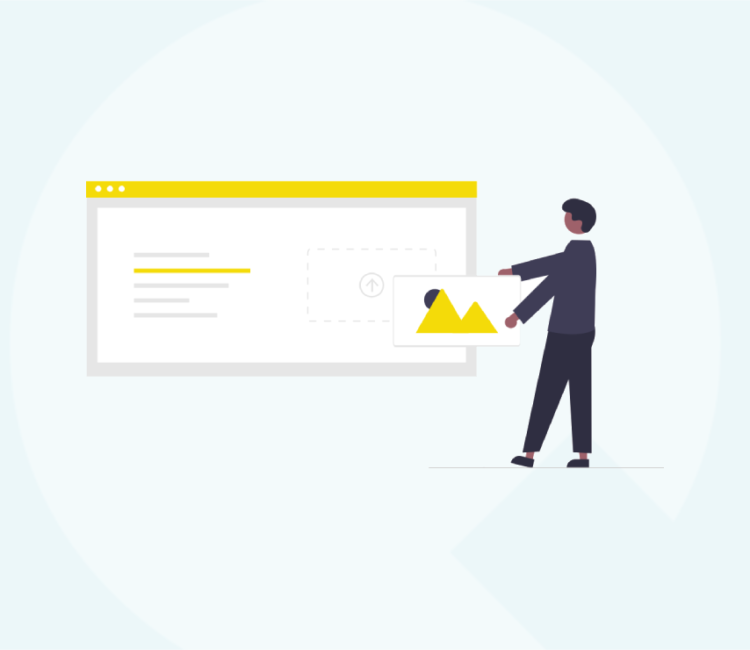In recent years, the remote work revolution has transformed the way we work, allowing individuals to work from the comfort of their homes or any location of their choice. While remote work offers flexibility and numerous advantages, it also presents unique challenges to our mental well-being.
The lack of social interactions, blurred boundaries between work and personal life, and increased autonomy require us to develop resilience and prioritise our mental health. In this comprehensive article, we will explore effective strategies for developing resilience and maintaining mental well-being in the remote work era.
Understanding the challenges of remote work
Though it’s not always simple, remote working seems like the corporate transformation we need. Like anything else, working remotely has drawbacks and difficulties. It can be difficult to manage your time while working remotely.
Isolation and loneliness
Remote work can often lead to feelings of isolation and loneliness due to the lack of daily face-to-face interactions with colleagues. The absence of spontaneous conversations and physical presence can impact our mental well-being. It is the biggest expressed worry among remote employees, and its repercussions can have an impact beyond simply the individual.
Increased stress and poor decision-making are two signs of isolation. These are alarming qualities for someone with important responsibilities, especially for an employer. Unfortunately, being isolated also makes it challenging for employers to recognise these symptoms.
To combat isolation:
- Engage in virtual team-building activities to foster connections with colleagues.
- Seek online communities or forums related to your profession or interests.
- Schedule regular check-ins or virtual coffee breaks with colleagues or friends.
Blurring boundaries between work and personal life
In a remote work setup, the boundaries between work and personal life can become blurred, leading to longer working hours and difficulties in switching off from work mode. This can result in increased stress and a diminished sense of well-being.
Due to the natural worry that individuals are working too much and aren’t receiving the rest their minds require to function properly, some companies have made an effort to support the work-life balance of their employees by limiting access to work systems outside of office hours.

To establish clear boundaries:
- Create a designated workspace separate from your living area, if possible.
- Set specific working hours and communicate them to colleagues and family members.
- Implement routines that signify the start and end of the workday, such as taking a walk or practising a short mindfulness exercise.
Increased autonomy and self-motivation
Remote work requires individuals to take greater ownership of their work, manage their time effectively, and stay motivated without direct supervision. This shift in responsibility can be overwhelming for some and lead to decreased productivity and motivation.
Organisations must understand how motivation may be enabled in a remote working situation in order to safeguard the productivity and well-being of their employees because levels of motivation are related to both productivity and well-being of individuals.
To enhance autonomy and self-motivation:
- Use time-blocking techniques to structure your day and allocate specific time slots for different tasks.
- Set realistic goals and break them down into manageable steps.
- Find strategies that work best for you to stay focused and motivated, such as creating a to-do list or using productivity apps.
Variations in time zones
Those awful time zones have something to do with feeling or being out of the loop. It’s possible that you wake up right as your buddy is about to go to bed. This means that you can’t always count on your teammate to be there to respond to an urgent question or take care of any other pressing issue.
Although advantageous, managing a virtual team across different time zones can be very difficult. If this issue is not handled carefully, virtual teams may come to feel distant and alone.
Being a part of a silent team that doesn’t interact through chat, emails, video conferences, or other channels might make us feel alone and prevent us from collaborating and working as a team efficiently.
To deal with time zone variations:
- Consider having a four hour overlap to avoid collaboration delays
- Develop flexible working hours to allow team members work when they are most productive
- Comprehend the various remote work communication tools and how to balance their applications.
Cultivating resilience in the remote work environment
Building resilience has become more important for both individuals and companies in the ever-changing world of remote work. The challenges of working remotely are particular, including isolation, a blurring of work-life boundaries, and a greater reliance on digital contact.
The ability to adapt, recover from failures, and sustain wellbeing in the face of adversity is a trait that people who can flourish in this environment must possess. Professionals can handle problems successfully and find chances for growth and success in their remote work journey by applying the following:
Enhance problem-solving skills
Developing effective problem-solving skills equips you with the ability to overcome obstacles and navigate challenges more effectively. This skill set is invaluable in maintaining resilience in the face of adversity.
We frequently approach issues with trepidation and pessimism. That makes it harder for us to think clearly and objectively about a problem. We can face problems with optimism when we have a positive viewpoint. That increases the likelihood that we’ll actually find a workable answer. The mindset that challenges are opportunities for progress and that a good result is possible sets the stage for the final result.
To enhance problem-solving skills:
- Break down complex problems into smaller, more manageable tasks. Diagraming process flows can help break down tasks, making them easier to achieve.
- Explore alternative solutions and consider different perspectives.
- Seek input from colleagues or mentors who can provide fresh insights and advice.
Develop a growth mindset
A growth mindset is the conviction that you can improve your skills with work, criticism, and education. It is a crucial component of resiliency since it aids in overcoming obstacles, seizing opportunities, and adapting to change. But how can one develop a growth mindset?
Adopting a growth mindset is crucial for building resilience in the face of challenges. Embrace difficulties as opportunities for growth and learning rather than as setbacks. This mindset shift allows you to approach obstacles with a positive and adaptive attitude.
To develop a growth mindset:
- Emphasise the process rather than the outcome and focus on what you can learn from each experience.
- Practice self-reflection and self-awareness to identify areas for growth and improvement.
- Surround yourself with positive and supportive individuals who encourage your personal and professional development.
Build strong support networks
Nurturing connections with colleagues, mentors, and like-minded individuals is essential for maintaining resilience and well-being in the remote work era. These relationships provide support, guidance, and opportunities for collaboration and personal growth.
Regularly communicate—and not just about work. It’s essential that you regularly engage in one-on-one communication with your remote employees to keep them informed of expectations, deadlines, and other important information.
Although they don’t want to be micromanaged, your employees do want frequent chances to talk about both work-related and unrelated matters. It is vital to find out how each team member prefers to interact when working remotely.
To build strong support networks:
- Participate in online communities or professional networks related to your industry or interests.
- Join virtual meetups, webinars, or conferences to connect with like-minded professionals.
- Seek out virtual mentorship opportunities to learn from experienced individuals in your field.
Practice self-compassion
Self-compassion involves treating yourself with kindness, understanding, and acceptance during challenging times. It enables you to prioritise self-care and develop a resilient mindset. Self-compassion versus self-judgement, shared humanity versus isolation, and mindfulness versus over-identification are the three basic elements of self-compassion.
To practise self-compassion:
- Be mindful of your inner dialogue and replace self-criticism with self-encouragement and self-acceptance.
- Set realistic expectations for yourself and acknowledge that everyone faces setbacks and challenges.
- Engage in self-care activities that promote relaxation, such as practising mindfulness, engaging in hobbies, or taking breaks to do something you enjoy.
Maintaining mental well-being in the remote work era
Maintaining mental health has become crucial to both personal and professional success in the age of remote work. The conventional distinctions between work and home life are eroding, so working remotely presents its own special set of issues.
This is due to factors including feelings of isolation, increasing screen usage, and the ongoing battle to achieve work-life balance. Individuals can successfully navigate the remote work environment and uphold their utmost mental wellbeing by putting self-care, connection, and boundary-setting tactics into practice.
To ensure long-term wellbeing, remote employees should consider the following:
Establish a healthy routine
Creating a structured daily routine is vital for maintaining mental well-being in a remote work environment. A routine helps establish a sense of normalcy, supports work-life balance, and enhances productivity.
To establish a healthy routine:
- Set consistent wake-up and bedtime routines to maintain a regular sleep schedule.
- Schedule breaks throughout the day to rest, recharge, and engage in activities unrelated to work.
- Incorporate physical exercise, mindfulness practices, and leisure activities into your routine.
Engage in physical activity
Regular physical activity is crucial for managing stress, improving mood, and enhancing overall well-being. In a remote work setup, where physical movement may be limited, finding ways to incorporate exercise into your daily routine is essential.
To engage in physical activity:
- Explore various at-home workout options, such as yoga, HIIT workouts, or online fitness classes.
- Take short breaks during the workday to stretch or go for a walk.
- Make physical activity a priority by scheduling it into your daily routine.
Practice mindfulness and stress management techniques
Practising mindfulness and stress management techniques can help reduce stress, increase self-awareness, and improve focus and mental clarity.
To incorporate mindfulness and stress management techniques:
- Dedicate a few minutes each day to deep breathing exercises, meditation, or guided mindfulness sessions.
- Practice gratitude by reflecting on the positive aspects of your work and personal life.
- Journaling can be a helpful tool for processing emotions and reducing stress.
Take regular digital detoxes
Constant exposure to digital devices and online communication can contribute to feelings of overwhelm and burnout. Taking regular breaks from screens is crucial for mental well-being and maintaining a healthy work-life balance.
To take regular digital detoxes:
- Set boundaries around technology use by designating specific times or days for digital detox.
- Engage in activities that do not involve screens, such as reading a book, going for a nature walk, or pursuing a hobby.
- Create a screen-free environment during leisure time to encourage relaxation and better sleep quality.
Seek professional support when needed
Recognising when additional support is necessary and reaching out to mental health professionals is essential for maintaining mental well-being. Remote work should not be a barrier to seeking professional help if needed.
To seek professional support:
- Research and explore online counselling or therapy services that provide remote support.
- Reach out to your employer’s human resources department to inquire about available resources or mental health support programs.
- Prioritise your mental health by seeking help when experiencing persistent feelings of stress, anxiety, or depression.
In Summary
The remote work era offers incredible opportunities for flexibility and work-life integration. However, it also presents unique challenges to our mental well-being. By understanding and addressing these challenges, cultivating resilience, and implementing strategies to maintain mental well-being, we can thrive in the remote work environment.
Despite the difficulties mentioned above, working remotely can be extremely rewarding—as long as you are aware of what to expect and are equipped to deal with these problems. If you stick with it, you’ll benefit from autonomy, flexibility, the opportunity to work in your ideal setting, increased productivity, and perhaps even more free time for a life outside of work.
Prioritise self-care, build strong support networks, and seek professional help when needed. Together, we can embrace the opportunities remote work presents while nurturing our mental health and well-being.
About the Author
Tobi is a writer and editor with years of experience creating compelling content. She currently works as a marketing associate at Venngage infographic maker.


